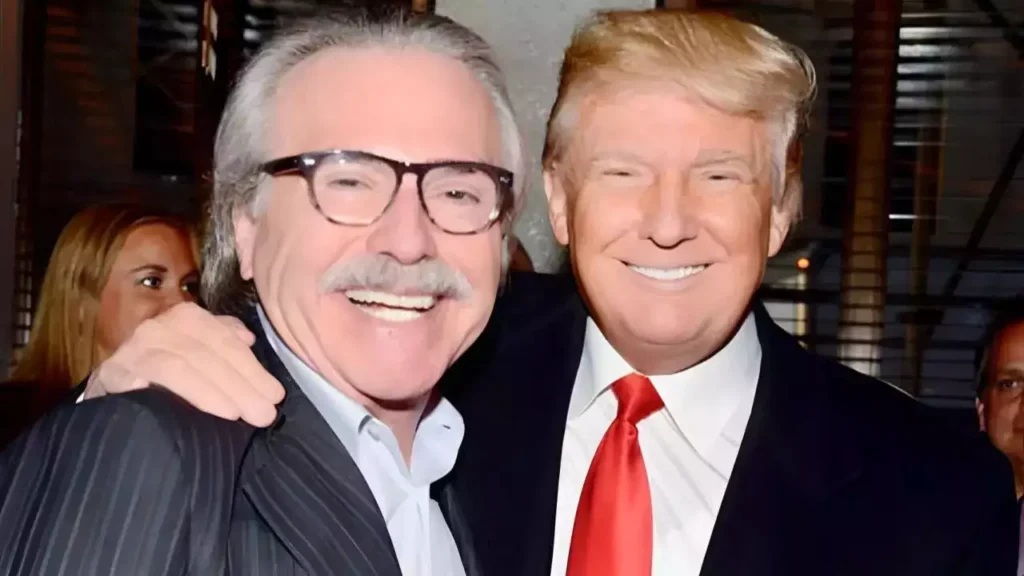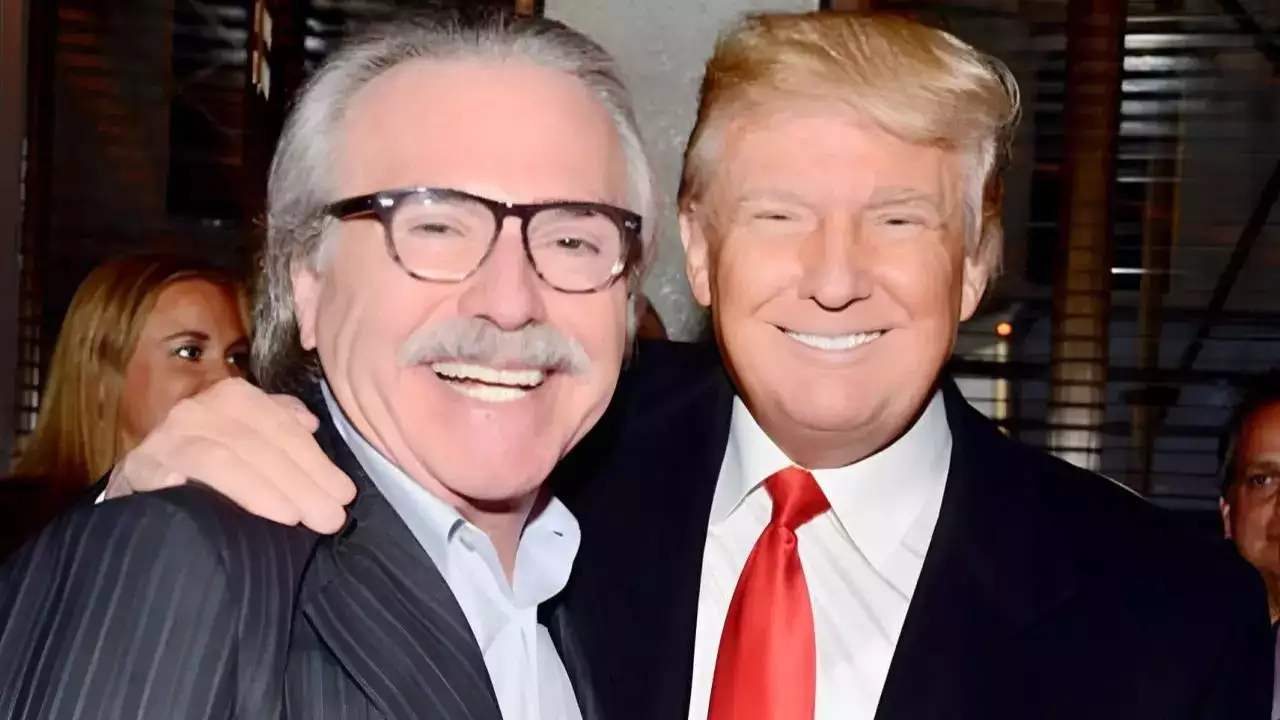David Pecker, Trump hush-money trial, catch and kill, Stormy Daniels, Karen McDougal, American Media Inc, National Enquirer, political scandals, legal trials, media ethics
David Pecker, a pivotal figure in the media industry, has emerged as the first witness in the high-profile criminal trial concerning former President Donald Trump’s alleged hush-money payments. As the ex-president and CEO of American Media Inc. (AMI), Pecker’s testimony is anticipated to be crucial in unfolding the details of the accusations against Trump, revolving around systematic efforts to suppress detrimental stories prior to the 2016 presidential election.

Who is David Pecker?
David Pecker is the former President and CEO of American Media Inc. (AMI), best known for its ownership of the National Enquirer, a tabloid frequently embroiled in high-profile scandal coverage. Pecker’s tenure at AMI was marked by his close relationship with Donald Trump and controversial practices such as “catch-and-kill,” where detrimental stories about allies, notably Trump, were suppressed by purchasing story rights without intention to publish. His involvement in such practices has placed him at the center of legal scrutiny and public debates about media ethics and political influence.
Background of David Pecker
David Pecker served as the president and CEO of AMI, the parent company of the infamous tabloid, the National Enquirer. Known for its sensationalist news coverage, the Enquirer under Pecker’s leadership, played a controversial role in the political arena. Pecker, who maintained a longstanding friendship with Donald Trump, found his and his company’s methods under scrutiny when their operations intersected with political objectives.
The Alleged Catch-and-Kill Strategies
Central to the trial is the concept of “catch-and-kill” tactics used by Pecker and AMI. This strategy involved purchasing the rights to potentially harmful stories with the intent not to publish them but to keep them from coming to light, effectively silencing the involved parties through binding agreements. This method was notably employed in dealings with Stormy Daniels, an adult-film actress who claimed to have had an affair with Trump. The prosecution asserts that in the run-up to the 2016 election, Pecker was instrumental in managing the suppression of this story by orchestrating a payment of $130,000 to Daniels, purportedly to prevent her from publicizing her account.
The Stormy Daniels and Karen McDougal Incidents
Pecker’s involvement extended beyond Daniels. Another significant instance where his intervention is noted involves Karen McDougal, a model and actress who also alleged an affair with Trump. Reports suggest that AMI paid McDougal $150,000 for her story, only to withhold it from publication. This transaction, much like the one involving Daniels, was allegedly conducted at the direction of Michael Cohen, Trump’s personal lawyer at the time, who assured Pecker of reimbursement for these expenditures. The Federal Elections Commission later noted that the payment to McDougal was significantly above the typical editorial value, indicating a political motive rather than journalistic.
Legal and Ethical Implications
Pecker’s actions, as outlined in a 2018 non-prosecution agreement with the U.S. Department of Justice, highlight a troubling misuse of media influence for political gain. By ensuring that these stories remained unpublished, Pecker directly contributed to a lack of transparency during a critical democratic process—the presidential election. His granted immunity by the DOJ in 2018 underscores the severity and potential criminal nature of these undertakings.
The Importance of Pecker’s Testimony
The implications of Pecker’s testimony are far-reaching. It is expected to provide a window into the systemic efforts to manipulate public opinion and electoral outcomes via media control. This testimony could prove pivotal in establishing a pattern of intentional cover-ups and illicit activities purportedly directed by Trump and his associates.
Broader Consequences
The trial, through testimonies like Pecker’s, seeks to paint a broader picture of conspiracy and deliberate misinformation. It aims to demonstrate that the alleged actions were not isolated incidents but part of a concerted effort to influence the election’s outcome favorably. Such revelations are crucial in assessing the integrity of electoral processes and the role of money and power in American politics.
Conclusion
As the trial progresses, the testimony of David Pecker is expected to unravel the complex layers of influence, power, and corruption that possibly swayed the 2016 Presidential Election. It serves not only as a critical examination of Donald Trump’s actions but also as a profound moment of reflection for the American media landscape and its role in the political fabric of the country. This case may very well redefine the boundaries of legal and ethical conduct for media entities in the political sphere, setting precedents for future interactions between media moguls and political figures.
Read Also-
